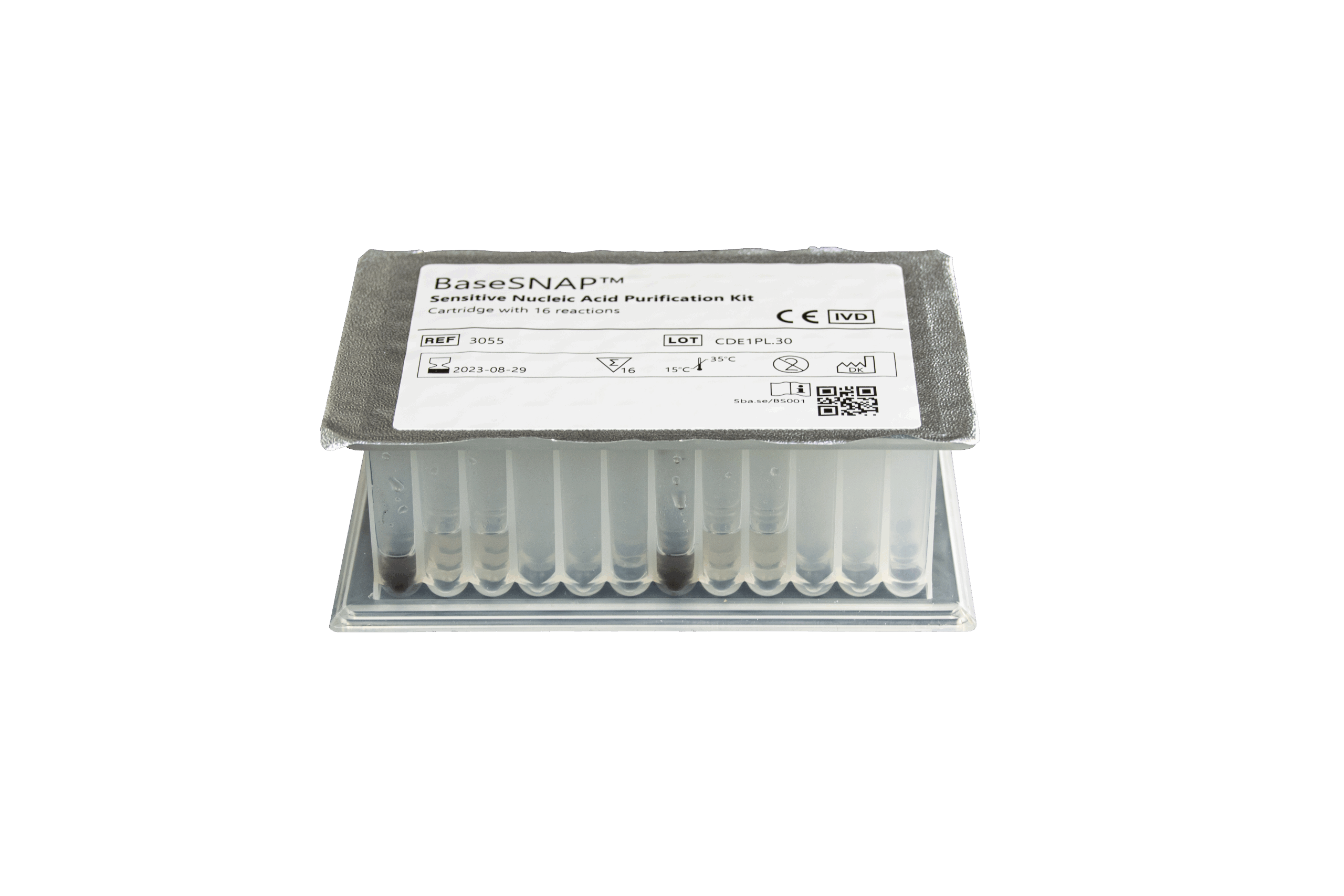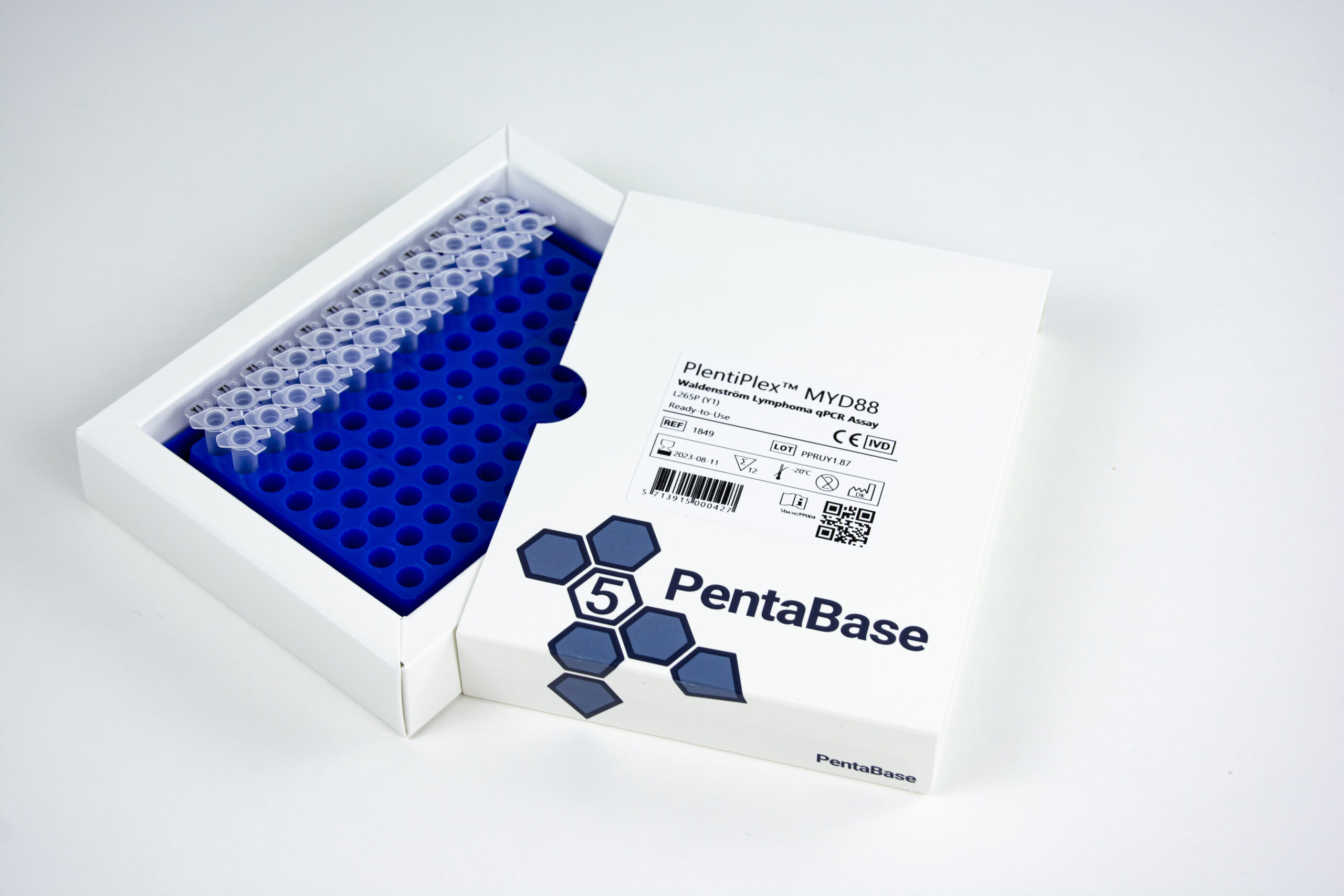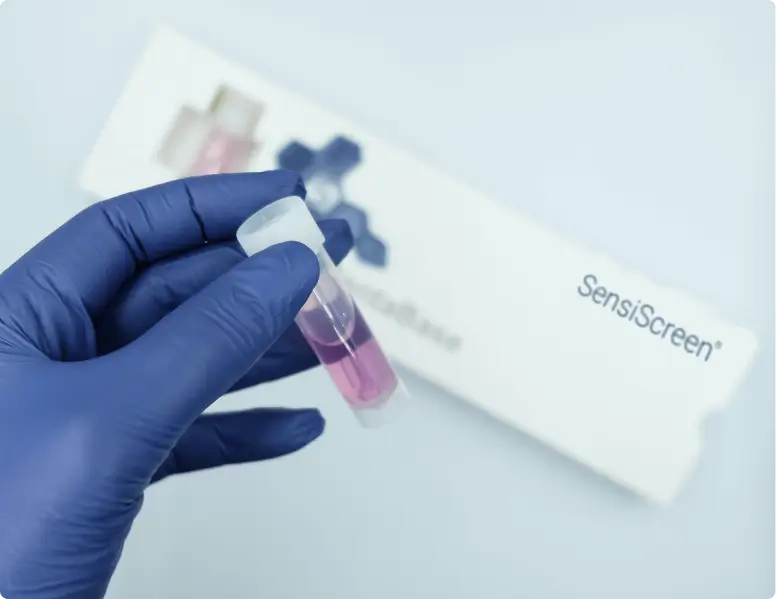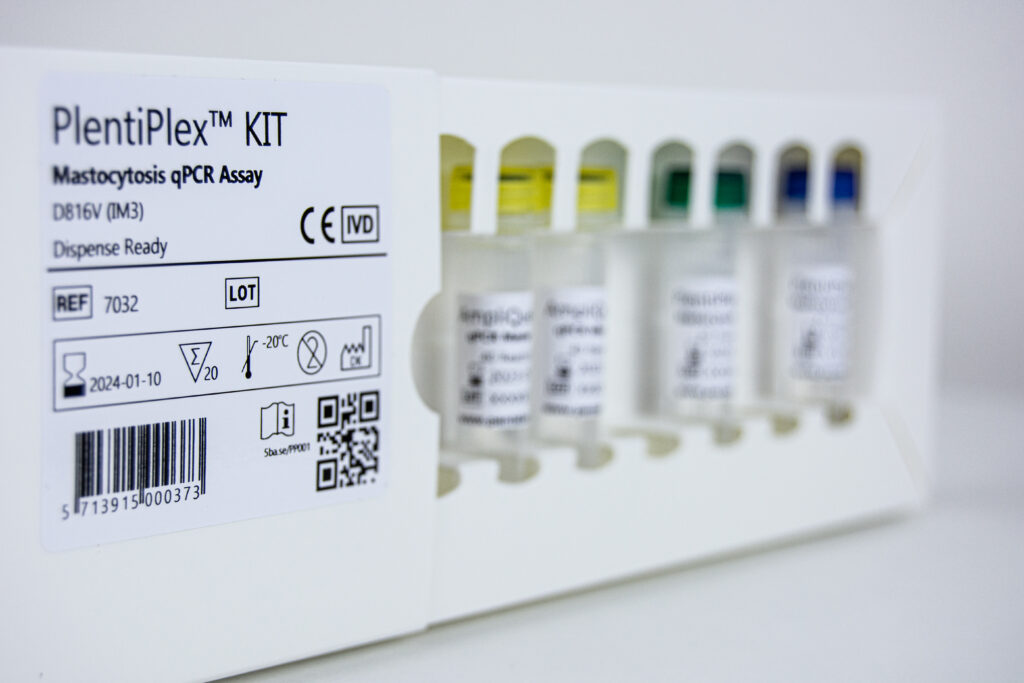
BaseSNAP™
Sensitive Nucleic Acid Purification kit
The BaseSNAP™ DNA and RNA Extraction kit is intended for automated extraction of RNA/DNA from saliva or oropharyngeal and nasopharyngeal swabs. The extraction kit is our low cost, high yield solution allowing for high-throughput processing of samples. The BaseSnap™ DNA and RNA Extraction kit can be used widely in the following fields: diagnostics, genomics research, disease detection, food safety and forensic identification, etc.
Product Details
Reference number:
3054, 3055, 3057
Intended Use
The BaseSNAP™ DNA and RNA Extraction kit is intended for automated extraction of RNA/DNA
from saliva or oropharyngeal and nasopharyngeal swabs. Our extraction kit offers a cost-effective, high-yield approach that facilitates high-throughput sample processing. The BaseSnap™ DNA and RNA Extraction Kit is widely applicable across multiple fields, including diagnostics, genomics research, disease detection, food safety, and forensic identification, etc.
Magnetic beads binds the negatively charged nucleic acid. The specialized magnetic rods magnetize, transfer, and release the magnetic beads carrying nucleic acids during nucleic acid extraction, thereby accomplishing automated extraction.
Product Specifications
BaseSNAP™ Sensitive Nucleic Acid Purification kit
Sample types: Swab and other
Format: Single
Ref. No.: 3054
BaseSNAP™ Sensitive Nucleic Acid Purification kit
Sample types: Swab and other
Format: 5 plates of 16 reactions
Ref. No.: 3055
BaseSNAP™ Sensitive Nucleic Acid Purification kit – minus eluent
Sample types: Swab and other
Format: 5 plates of 16 reactions
Ref. No.: 3057
Instructions For Use
For the latest version of the catalogue – Click here –

Assisting the Stratification of Lymphomas
The PlentiPlex™ MYD88 L265P assay detects and characterizes the leucine-to-proline mutation at codon 265 of the MYD88 protein in genomic DNA (gDNA) samples under in vitro conditions. The assay results support the clinical differentiation of patients with Lymphoplasmacytic Lymphoma/Waldenström Macroglobulinemia (LPL/WM) from those with other non-Hodgkin lymphomas.

